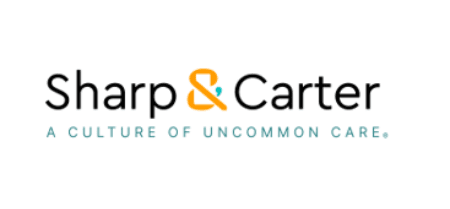The Procurement Pivot: Adapting to a Changing Talent Pool
As the Procurement and Supply Chain market continues to evolve, hiring strategies are shifting alongside it. We sat down with Liam Scott, Senior Consultant for Procurement in Sharp & Carter’s NSW team, to unpack the key trends shaping 2025.
From changing skillsets and evolving candidate expectations, to growing demand for flexibility, speed, and strategic thinking, Liam unpacks what’s driving the market forward. He shares what’s standing out, what employers need to be aware of, and how talent teams can stay competitive.
Scroll down for the full question and answer session with Liam, and download the official Procurement Market Insight Report for 2025.
 |
|
On Market Evolution & Trends
Q: Liam, your report outlines how procurement hiring strategies are shifting in 2025. What’s been the biggest surprise in how companies are approaching talent attraction this year?
Liam: The biggest surprise in talent attraction this year has been how companies are approaching senior hires. We’re seeing organisations pass over highly experienced candidates - those who’ve “been there and done that” - in favour of emerging talent who come at a lower cost. It reflects a shift toward cost-consciousness, but also a strategic investment in long-term potential.
As a result, many senior professionals have been sitting on the market for 6+ months and are now considering short-term contract or consulting roles they might have previously overlooked.
Q: You mentioned that experienced professionals are now open to roles they may have previously passed over. What does this mean for employers and team structures?
Liam: There are two ends of the spectrum here. On one hand, we are seeing employers secure exceptional talent at a lower cost - people who can add significant value in roles they’re likely overqualified for.
On the other hand, some of this talent still has one eye on the market, which can lead to higher turnover and the associated costs of rehiring and lost productivity. A smart way to manage this risk is by offering a temporary-to-permanent arrangement, giving both employer and employee a ‘try before you buy’ opportunity.
Q: The report highlights emerging skills like AI, sustainability, and SRM. Are you seeing demand for these in live roles, or is it still more of a ‘wish list’ for clients?
Liam: The more we learn about AI, the more we’re seeing its growing influence across the industry. Professionals who were once hesitant to engage with it are now adapting. AI is here to stay, so learning how to optimise its use is essential. Organisations like CIPS are leading the way, hosting seminars and events focused on the role of AI in procurement.
Sustainable procurement has also become a huge priority. Employers are actively seeking strategic procurement professionals who can go beyond cost savings to drive more responsible, future-focused decisions – especially in food supply chains, where food safety, traceability, and cold chain management are critical.
On Candidate Landscape
Q: How have candidate expectations changed over the past 12–18 months?
Liam: The term “flexible work” means different things to different people, but for most candidates, it's becoming more appealing than salary. With childcare and commuting costs at an alltime high, there’s still a strong appetite for hybrid working arrangements. Flexible start and finish times, particularly to accommodate school drop-offs and pick-ups, are a major driver in today’s market.
Also, with how common redundancies have become, we are seeing contract roles being viewed more favourably. The appeal of a strong day rate is often outweighing the promise of ‘stability’ in a market that’s anything but stable.
Q: What advice would you give to procurement professionals who’ve found themselves competing for fewer senior roles this year?
Liam: Networking is your most powerful tool in today’s job market. Whether it’s attending industry events, reconnecting with former colleagues or managers, or touching base with a recruiter or two you’ve worked with before, your professional network is often the first place employers turn when hiring. If they know you’re available, you’ll be top of mind.
If you’re currently out of work, don’t hesitate to take on short-term contracts. They’re a great way to stay active and relevant in a fast-moving market and you never know where they might lead. I’ve seen countless short-term gigs evolve into long term and even permanent dream roles.
Most importantly, stay positive. It’s a tough market right now, but it will turn. Patience will be your greatest ally.
Q: Negotiation and internal stakeholder management came up strongly as top candidate skills. Are there particular industries or role types where you’re seeing these really in demand?
Liam: Negotiation and stakeholder management are essential skills for any procurement professional. They are both key to securing the best possible deals and ensuring transparency across internal teams.
That said, industries like FMCG and retail food, where margins are tight and the pace is fast, place even greater demand on these capabilities. Procurement professionals in these sectors must be able to negotiate down to the last dollar to protect profitability, while also managing internal stakeholders effectively to ensure supplier audits, quality assurance, and inventory turnover are optimised across perishables and organic sourcing.
On Employer Challenges
Q:The report calls out the need for companies to act fast in recruitment. Can you share an example of how a client’s speed (or slowness) made or broke a hire recently?
Liam: We recently worked with one of our returning clients on a procurement role and came across a standout candidate who was already midway through another recruitment process. He’d already completed a first-round interview and was waiting over a week for the second.
We were transparent with our client about his situation and the need to act quickly if they were interested. Within a week of reviewing his CV, they moved through two rounds of interviews and progressed to offer stage. Meanwhile, the other employer had only just wrapped up their second interview and was still deliberating. The candidate appreciated our client’s decisiveness and chose to withdraw from the other process.
It’s a great example of how efficiency can win talent. Due diligence wasn’t sacrificed - two interviews and reference checks still took place - but a smooth, timely process made all the difference for both the employer and candidate.
Q: You talk about balancing sustainability, cost control, and innovation - that’s a lot for any procurement team. What types of talent or mindsets are standing out in this balancing act?
Liam: Procurement teams are under more pressure than ever to juggle a wide range of competing priorities across the supply chain. This is requiring employers to seek strategic thinkers who can manage complexity and multitask effectively. Candidates who’ve taken the initiative to upskill, earn additional qualifications, and sharpen their commercial acumen are standing out - often ahead of those relying solely on experience.
Q: What are some practical ways you’ve seen employers improve their Employee Value Proposition (EVP) in this climate?
Liam: Employers can elevate their EVP by setting a strong standard within the industry. If there’s one thing I’ve learned recruiting in the NSW procurement market, it’s that it’s a small world and people talk. Provide a good work environment for your staff and it will attract real talent. Follow that up with detailed job descriptions and transparency from day 1, and it is a recipe for success.
Looking Ahead
Q: If you had to summarise 2025 in one sentence for procurement employers, what would it be?
Liam: Be efficient but diligent – try your best to run a smooth process whilst always making sure your due diligence is done.
Q: What are you most optimistic about when it comes to the NSW procurement talent market this year?
Liam: Everything is trending upwards in the talent market, we are seeing higher job flow, less redundancies and more money being spent.
Speaking to my colleagues around the office, it looks as if there has been a major uptick across the sales and marketing space and this creates more demand which will create need for supply. This is where we will see the procurement market flourish.
Final Thoughts
The NSW procurement market is entering a new phase, one where commercial capability, adaptability and process are essential to hiring successfully. Liam’s observations address the challenges and opportunities for employers and job seekers alike.
For businesses looking to attract and retain the best people for the job, the message is clear: be agile, be transparent and create an environment where your people can thrive.
The market is moving, and those ready to move with it will be best placed to lead.
 |
|


.png)
.png)
.png)

.png)
